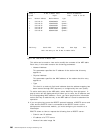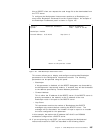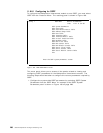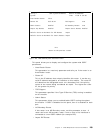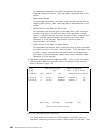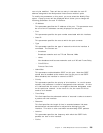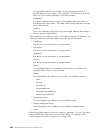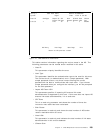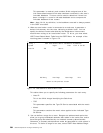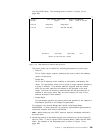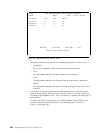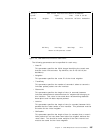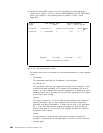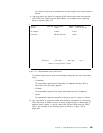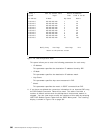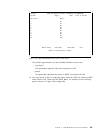
This parameter is read-only and contains 32-bit unsigned sum of the
Link-state-advertisement′s link-state checksum contained in this area′s
link-state database. This sum can be used to determine if there has
been a change in a router′s link-state database and to compare the
link-state database of two routers.
Note: Area 0.0.0.0, by definition, is the backbone area and is always present
in the OSPF area table.
4. When an area border router is connected to a stub area, it generates a
default link summary into the area, indicating a default route. You can
specify the default routes advertised by the Multiprotocol Interconnect
module when acting as an area border router. To do so, you must select
OSPF Area Default Metric Table
from the
OSPF Menu
. An example of the
resulting panel is shown in Figure 172.
Config * OSPF Area Default Metric TablModule: BladeRunner
System Page 1 Time: 17:41 11 Jan 95
Area ID TOS Metric
Add Entry Prev Page Next Page Exit
Return to the previous screen
Figure 172. LMS OSPF Area Default Metric Table
This table allows you to specify the following parameters for each entry:
•
Area ID
This is the 32-bit integer identifying the Stub Area.
•
TOS
This parameter specifies the Type Of Service associated with the metric.
•
Metric
This parameter contains the metric value applied at the indicated Type
Of Service.
5. You can define a range for an area. Ranges are address/mask pairs that
allow you to group subnetted networks that reside in the same area, and to
have that group be advertised by
one
network summary advertisement.
Otherwise, a summary advertisement would be generated for each subnet in
the area. To define a range for an area, select
OSPF Area Address Range
294 8260 Multiprotocol Intelligent Switching Hub



